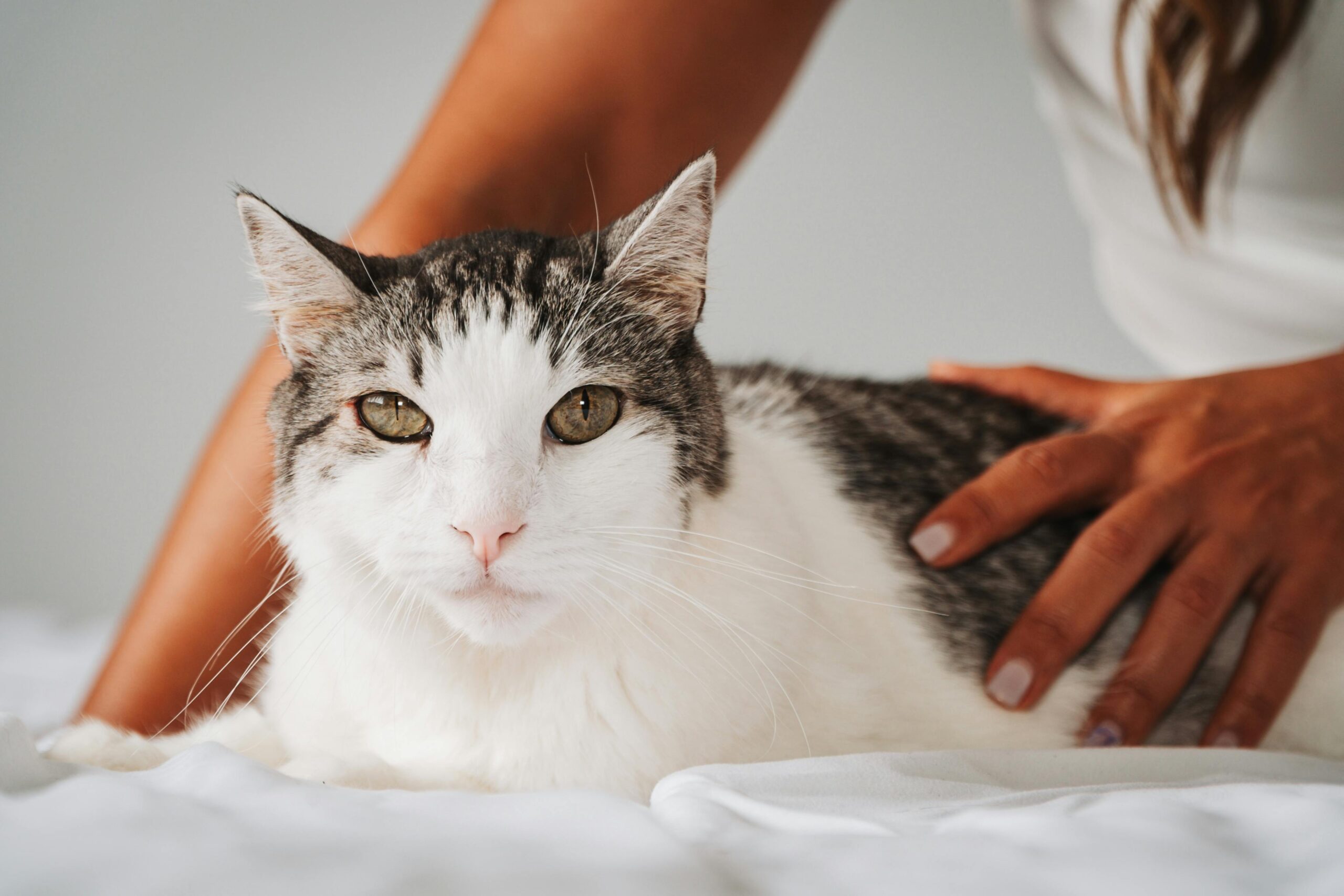When Should I Suspect My Cat Has Heartworms?
If you live in an area with heartworms, you probably already know that this is a large worm that infects dogs after they are bitten by an infected mosquito. Many people do not know that it can infect cats too. You may wonder how to tell if your cat has heartworms. The signs of heartworm disease in cats are:
- Coughing
- Breathing hard
- Breathing fast
- Poor appetite
- Weight loss
- Vomiting
- Diarrhea
If you’re wondering how to tell if your cat has heartworms, the first signs of heartworm disease that people notice are coughing and difficulty breathing (Dillon et al., 2000). Cats may die suddenly too, but if your cat has these signs, they need to be examined by your veterinarian to determine if this is asthma, a heart problem, heartworms, or some other condition.
How Likely Is It That My Cat Will Get Heartworms?
If you live in an area where there are dogs with heartworm, there is a good chance some cats in the neighborhood are infected too. There are no exact numbers, but some researchers suggest that about 20% of the cats in an infected area contract the disease (Lin et al., 2017).
How Do Vets Test for Heartworm?
Testing for heartworm in cats is not as simple as it is for dogs. Even if your cat has symptoms and the vet suspects HARD (heartworm-associated respiratory disease), some of the testing comes up negative (Dillon et al., 2017).
- Heartworm test: If the test is positive, that’s a sure way to tell your cat has heartworm. But a negative result does not mean there are no heartworms causing problems. Some cats have only a few worms; others may have only a male worm and none of the females that lead to a positive test.
- Chest X-rays: The next step is to look at chest X-rays to see if there are changes consistent with heartworm. Unfortunately, some x-ray signs go away after the cat has had the worms for a while.
- Bloodwork: The vet may also do bloodwork and send out a test to check for antibodies to heartworms, but a positive test does not always mean that a cat has heartworms. Some cats will have antibodies just from exposure.
- Echocardiograph: The only other way how to tell if a cat has heartworms is if the test is negative by an ultrasound of the heart. The reason is that heartworms are seen moving around in about 80% of the infected cats. This test is even more reliable than in dogs since a cat’s heart and blood vessels are smaller and thinner.
How Much Does It Cost to Test a Cat for Heartworms?
A vet can tell if your cat has heartworms by carrying out the following tests. Costs will vary depending on the difficulty of the diagnosis.
- Examination and heartworm test: At the bare minimum, you will need to pay for an exam and a heartworm test, about $100.
- X-ray: If the test is negative, which it often is, your cat will also need an x-ray to look for signs of heartworm or asthma, about $150.
- Bloodwork: A blood test to look for anemia and inflammation is about $30, and the test to look for internal organ damage (kidneys, liver, etc.) is $50–$150, depending on how much is tested.
- Echocardiograph: If an ultrasound is needed, it is more expensive, usually between $300 and $600.

Can My Cat Recover from Heartworm?
There are no treatments for heartworms in cats at this time. If your cat is coughing and having trouble breathing, the vet can prescribe some anti-inflammatory tablets (prednisone), and the cat will need to be treated for about 3–4 weeks. They will also be started on a heartworm preventative at that time. If a cat is in very bad shape, it is possible to remove the worms with surgery, but many go into shock and die. With cats, the only reliable approach is to prevent them from getting the worms by giving them a monthly preventative.
How Long Can My Cat Live with Heartworms?
According to one study of 364 infected cats, 26% self-cured without symptoms within 21–48 months and lived the rest of their lives normally. Fifty-three percent had symptoms but were also without heartworms within 18–49 months, and only 21% of the infected cats died within 8–41 months (Genchi et al., 2008).
Based on those results, a cat with heartworms can die suddenly but will usually live about three or four years if they are still showing signs of the disease. That is better than many of the other chronic diseases of older cats, and if the symptoms of heartworm disappear, there is a good chance that your cat can live the rest of their life normally.
Are There Home Remedies to Treat Heartworms in Cats?
No home remedies are available developed for cats with heartworms. A slow-kill medication (moxidectin) vets use in dogs is available for cats, but no studies show whether or not it works on adult heartworms living in cats.
Does My Indoor Cat Need Heartworm Prevention?
Cats that go outdoors or roam are at higher risk, but even indoor cats can become infected. Some research has found that about 25% of all diagnosed cats are indoor-only. Since this disease is difficult and expensive to diagnose and impossible to treat, indoor cats should be on a heartworm preventative.
Should I Test My Cat Before Starting Heartworm Preventative?
According to the American Heartworm Society, cats should be tested before starting a heartworm preventative. That is despite the fact that almost no cats have microfilaria (that might cause a problem). Even if the cat were to test positive and had no signs, no treatment would be started. They also recommend that the cat be retested as often as the prescribing veterinarian feels necessary, or about every year.
Because of those AHS recommendations, your veterinarian may require you to do a test before prescribing heartworm prevention for your cat. Heartworm preventatives are available over the counter from sites based in Canada and Australia.
References
- Dillon AR, Brawner AR Jr, Robertson-Plouch CK, Guerrero J. Feline heartworm disease: correlations of clinical signs, serology, and other diagnostics–results of a multicenter study. Vet Ther. 2000 Summer;1(3):176-82. https://pubmed.ncbi.nlm.nih.gov/19757580/
- Lin CH, Lo PY, Tsai HJ, et al. Dirofilaria immitis exposure status in client-owned cats with or without lower airway/lung-associated signs: case-control study in a canine heartworm-endemic area. J Feline Med Surg. 2017;19(2):153-157. https://www.cliniciansbrief.com/article/heartworm-exposure-cats
- Dillon AR, Blagburn BL, Tillson M, Brawner W, Welles B, Johnson C, Cattley R, Rynders P, Barney S. Heartworm-associated respiratory disease (HARD) induced by immature adult Dirofilaria immitis in cats. Parasit Vectors. 2017 Nov 9;10(Suppl 2):514. https://www.ncbi.nlm.nih.gov/pmc/articles/PMC5688437/
- Genchi C, Venco L, Ferrari N, Mortarino M, Genchi M. Feline heartworm (Dirofilaria immitis) infection: a statistical elaboration of the duration of the infection and life expectancy in asymptomatic cats. Vet Parasitol. 2008 Dec 10;158(3):177-82. https://pubmed.ncbi.nlm.nih.gov/18922638/




